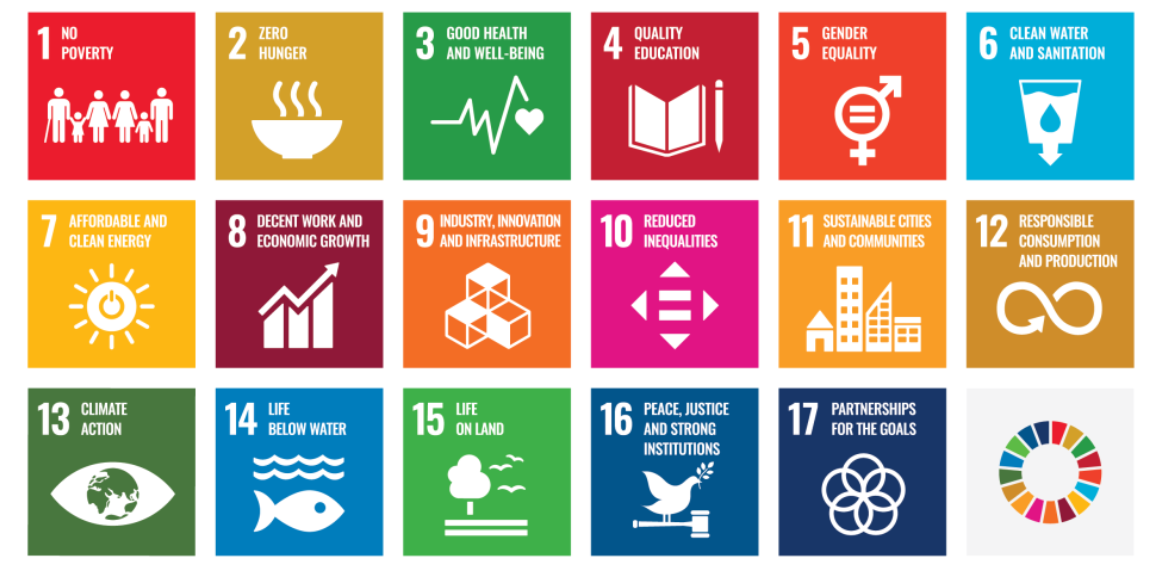

As the global community races toward the 2030 deadline, Syenah plays a pivotal role by leveraging GenAI technology to monitor and mitigate ESG risks in real time, ensuring that businesses align their actions with the SDGs and contribute to a more equitable and sustainable world.
On September 22nd and 23rd, global leaders will convene at the United Nations Headquarters in New York to address the Sustainable Development Goals —a set of 17 ambitious targets established in 2015 aimed at building a more equitable and sustainable world by 2030. With only six years left to achieve these goals, the recently released 2024 Sustainable Development Goals Report paints a concerning picture. Currently, only 17% of the SDG targets are on track. More than one-third of the targets have either stalled or regressed, highlighting the significant challenges the global community faces.
Why the SDGs Matter
The SDGs are not mere aspirations, they represent a framework designed to tackle the world’s most pressing issues. They were established in 2015 by the United Nations as part of the 2030 Agenda for Sustainable Development, a global plan adopted by all 193 UN member states. Meeting these goals is essential for ensuring a future where economic growth is balanced with social inclusion and environmental sustainability. For instance, Goal 1 (No Poverty) and Goal 2 (Zero Hunger) are foundational for broader economic development, as they address the basic needs that must be met before any society can truly prosper. Goal 13 (Climate Action) is critical for mitigating the escalating effects of climate change, which threaten to undo decades of progress in other areas.
Current Progress and Challenges
The 2024 SDG Report indicates that while 17% of targets are on track, nearly half are showing only minimal or moderate progress, and the remaining goals are either stagnating or declining.
 Source: The Sustainable Development Goals Report 2024
Source: The Sustainable Development Goals Report 2024
The lingering impacts of COVID-19, combined with ongoing conflicts, climate shocks, and economic turmoil, have exacerbated existing inequalities. Between 2019 and 2022, an additional 23 million people fell into extreme poverty, and over 100 million more suffered from hunger. Environmental crises are further threatening planetary ecosystems; 2023 marked the warmest year on record, with global temperatures approaching the 1.5°C limit set by the Paris Agreement. Greenhouse gas emissions and atmospheric carbon dioxide concentrations hit new highs in 2022, with no signs of slowing in 2023.
Developing countries are disproportionately affected by these challenges. Systemic deficiencies in global economic and financial systems, coupled with insufficient international support, have left these nations grappling with escalating inequalities, biodiversity loss, and persistent gender disparities. The report underscores that without substantial reforms in global governance and financial architecture, these countries are at risk of falling further behind, jeopardising the achievement of the SDGs.
Despite these setbacks, there have been notable successes. Renewable energy capacity has surged by 8.1% annually over the past five years, and global internet access has increased from 78% in 2015 to 95% in 2023. Healthcare advancements have significantly reduced HIV/AIDS-related deaths, with increased access to life-saving treatments averting 20.8 million deaths over the past three decades. Additionally, girls in many regions have achieved or surpassed parity with boys in educational attainment. Technological innovations, including artificial intelligence, are also transforming work and employment opportunities, with 5.4 billion people now having access to the Internet.
The Path Forward
To achieve the SDGs, the 2024 report calls for bold, coordinated action in three key areas:
The Role of Businesses and Investors in Achieving the SDGs
The relevance of the SDGs extends far beyond governments and non-profits. For businesses and investment managers, the SDGs represent both a responsibility and an opportunity, unlocking new markets and driving innovation. For instance, investing in renewable energy not only helps combat climate change but also opens up new revenue streams in a rapidly growing sector. Similarly, improving access to education and healthcare can lead to a more skilled and healthy workforce, boosting productivity and economic growth. Companies that lead in these areas are likely to enjoy a competitive advantage, as consumers and investors increasingly favour businesses that demonstrate a commitment to sustainability. The private sector’s involvement is indispensable, as it has the resources, innovation, and influence to drive significant progress.
ESG-Sentinel: A Solution for Real-Time SDG Compliance and Risk Management
In light of these challenges ESG-Sentinel emerges as a powerful tool for corporates and financial institutions committed to achieving the SDGs. ESG-Sentinel is an advanced platform that provides real-time ESG risk intelligence, helping organisations detect and analyse potential misalignments with SDG targets.
As the world faces unprecedented challenges, the need for real-time, actionable insights into ESG performance has never been greater. ESG-Sentinel offers a comprehensive solution, empowering organisations and investors to navigate the complexities of sustainable development and make a meaningful impact.
Contact us today to see how your organisation can contribute to a better world by 2030.